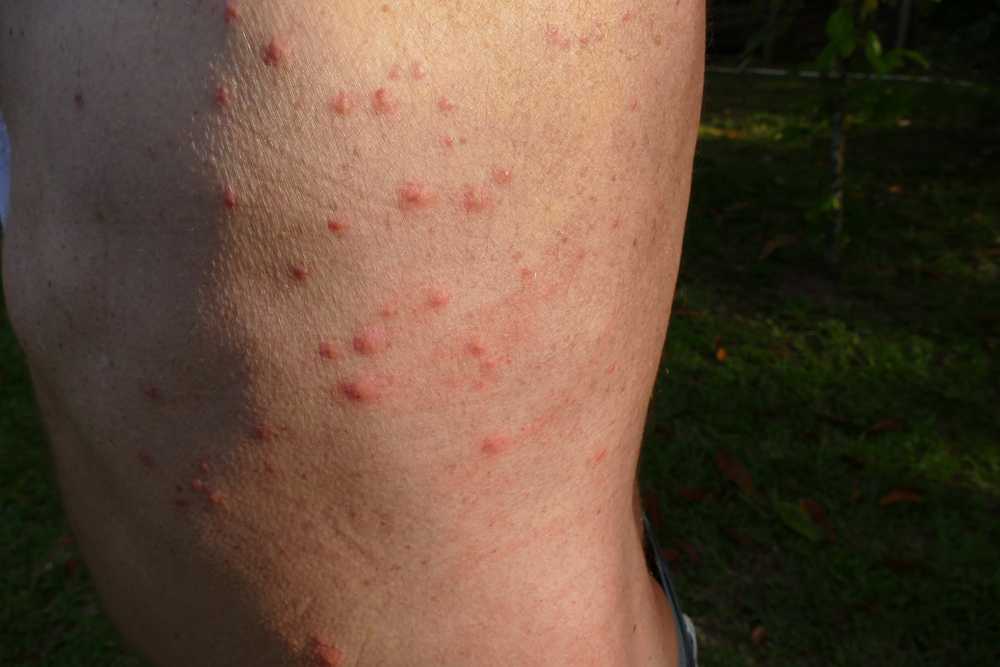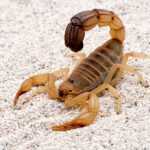Do Bed Bug Bites Hurt? Symptoms, Pain Relief, and Prevention
Do bed bug bites hurt? For most people, bed bug bites don’t cause sharp pain but can lead to mild discomfort and persistent itching that’s hard to ignore. In rare cases, some individuals may experience more severe reactions, including painful swelling due to allergic responses. This article dives into the symptoms, effective pain relief options, and smart strategies to prevent bed bug bites before they become a nightmare.
- Bed bug bites usually cause mild discomfort and itching rather than sharp pain, thanks to anesthetic compounds in their saliva.
- Symptoms vary widely—from barely noticeable bumps to severe allergic reactions that may require medical care.
- Preventing bed bug bites means keeping your living space clean, reducing clutter, and calling in professional pest control experts to effectively get rid of infestations.
Do Bed Bug Bites Hurt?
The question “do bed bug bites hurt?” has a surprisingly nuanced answer. Most people feel little to no pain when bed bugs bite, largely because these tiny insects inject an anesthetic that numbs the area. Instead, the real trouble starts hours or even days later, when itchy red welts begin to appear.
While the bites themselves aren’t usually painful, the itching can quickly become unbearable. In rare cases, individuals with allergies may develop painful swelling and intense itching that demands medical attention. Despite these occasional severe reactions, bed bug bites generally don’t cause lasting pain or serious health problems.
Knowing what to expect can help you stay calm and take prompt action to manage symptoms and prevent further bites.
Initial Bite Sensation
When a bed bug bites, the initial sensation is often so subtle that many people don’t even realize it’s happening. Thanks to the anesthetic properties in bed bug saliva, the bite goes unnoticed while the insect feeds.
The real discomfort arrives later—sometimes after a few hours or even a few weeks—when itchy, red bumps start to show up. These bumps are often mistaken for other insect bites, such as mosquito or flea bites, making it tricky to identify the true culprit.
Individual reactions vary greatly: some people barely notice any symptoms, while others develop clusters of itchy welts that disrupt sleep and daily life.
Symptoms of Bed Bug Bites
Bed bug bites usually appear as raised, itchy welts often arranged in a zigzag or straight line on exposed skin like the face, neck, arms, and hands. This pattern is a telltale sign of a bed bug infestation.
These tiny insects tend to bite in clusters or lines, following a path as they feed. The welts can range from small, barely noticeable bumps to larger, inflamed marks, especially in people with allergic reactions.
While most bites heal on their own within a few weeks, excessive scratching can cause skin infections or secondary complications. If you notice unusual swelling, blistering, or persistent redness, it’s wise to consult a healthcare professional.
Allergic Reactions to Bed Bug Bites
Not everyone reacts the same way to bed bug bites. Some people experience no symptoms at all, while others suffer from severe allergic reactions.
In more sensitive individuals, bites can cause intense itching, blisters, and painful swelling. In rare occasions, allergic reactions can be serious enough to require medical intervention. Taking antihistamines or applying prescribed creams can help ease these symptoms.
If you notice signs of a severe allergic reaction, such as difficulty breathing or widespread swelling, seek emergency medical care immediately.
Pain Relief for Bed Bug Bites
Relieving the itch and discomfort from bed bug bites is easier than you might think. Start by washing the affected area with soap and water to reduce irritation and prevent infection.
Applying cold compresses or soothing lotions can calm the skin and reduce itching. Over-the-counter anti-itch creams or low-strength steroid creams are also effective, especially for children.
If symptoms persist or worsen, don’t hesitate to consult a healthcare professional for stronger medications or advice tailored to your needs.
Preventing Bed Bug Bites
The best way to avoid bed bug bites is to prevent infestations in the first place. Keep your living space tidy and clutter-free to reduce hiding spots for these pests.
Regularly washing and heat-drying bed sheets, clothing, and other fabrics can kill bed bugs and their eggs. Vacuuming thoroughly and promptly disposing of vacuum bags in sealed plastic bags helps control bed bug populations.
Seal cracks and crevices around baseboards, electrical outlets, and loose wallpaper to eliminate potential hiding places. Using bed bug-proof encasements on mattresses and box springs provides an added layer of defense.
When dealing with an infestation, professional pest control companies have the expertise and tools to effectively get rid of bed bugs and prevent their return.
Identifying Bed Bug Infestations
Early detection is key to controlling bed bug infestations. Look for telltale signs like small red itchy bumps on your skin, bloodstains on bed sheets, or a musty odor resembling rust or wet laundry.
You might also find tiny dark spots of bedbug excrement, shed skins from young bed bugs, or clusters of pearly white eggs in mattress seams, upholstered furniture, or behind loose wallpaper.
Spotting these signs early allows you to act quickly and avoid a full-blown infestation.
Treating Bed Bug Infestations
Eliminating bed bugs isn’t easy, but professional pest control companies offer effective solutions. Their expertise includes heat treatments and safe chemical options that target all life stages—from young bed bugs to adult bed bugs.
Multiple treatments are often necessary to fully eradicate an infestation. Combining methods like heat, desiccants, and pesticides helps ensure success.
DIY home remedies may provide temporary relief, but rarely solve the problem. Trusting professionals is the best way to protect your home and health.
Additional Risk Factors for Bed Bug Bites
Certain risk factors increase the likelihood of encountering bed bugs and experiencing bites. Frequent travelers, especially those staying in hotels or motels, are at higher risk due to the potential presence of bed bugs in hotel rooms.
People living in multi-unit housing such as apartments or dormitories may also be more vulnerable as bed bugs can easily spread between units through bed frames, electrical outlets, and cracks in walls.
Bringing in secondhand furniture without proper inspection can introduce bed bugs into your home. Always carefully examine used furniture for signs of bed bugs, including the presence of bed bug eggs and shed skins.
How to Find Bed Bugs in Your Home
Finding bed bugs early is crucial to prevent a severe infestation. Inspect common hiding places such as mattress seams, box springs, bed frames, upholstered furniture, and behind loose wallpaper or electrical outlets.
Look for bed bugs about the size of an apple seed, which are reddish brown in color and flat. You may also notice bedbug excrement, which appears as tiny dark spots, or clusters of bed bug eggs, which are small and pearly white.
Using a flashlight and magnifying glass can help spot these tiny insects. If you suspect an infestation, contact a pest control company promptly to confirm and begin treatment.
Bed Bug Bite Symptoms Compared to Other Bug Bites
Bed bug bites can be confused with other bug bites such as flea bites, mosquito bites, or spider bites. Flea bites often occur on lower legs and ankles and are smaller, while bed bug bites usually appear on exposed skin areas like arms and face.
Mosquito bites are generally isolated and random, whereas bed bug bites often appear in clusters or a zigzag pattern.
Spider bites are usually singular and can sometimes cause more severe reactions or skin damage compared to bed bug bites.
If you’re unsure about the cause of your bites, consult a healthcare professional for accurate diagnosis and treatment.
Bed bug bites may not hurt much initially, but the itching and allergic reactions can cause significant discomfort. Understanding the symptoms and knowing how to relieve pain helps you manage bites effectively.
Preventing bed bug bites requires vigilance, cleanliness, and sometimes professional help to control bed bug infestations. Early detection and prompt action are your best defenses against these tiny, persistent pests. If you suspect bed bugs in your home, don’t wait—contact a trusted pest control company to get rid of them and reclaim your living space.
Frequently Asked Questions
Do bed bug bites hurt?
Bed bug bites usually don’t cause sharp pain due to anesthetic compounds in their saliva. Most people experience mild itching and discomfort rather than significant pain.
How can I relieve pain and itching from bed bug bites?
Wash the bites with soap and water, apply cold compresses, and use over-the-counter anti-itch creams to soothe symptoms. Consult a healthcare professional if symptoms worsen.
What are common symptoms of bed bug bites?
Look for raised, itchy welts often arranged in zigzag or straight lines on exposed skin areas like the face, neck, arms, and hands.
How can I prevent bed bug bites?
Maintain cleanliness, reduce clutter, wash and heat-dry bedding regularly, seal cracks and crevices, and use bed bug-proof mattress encasements. Professional pest control is key for infestations.
What should I do if I suspect a bed bug infestation?
Check for bloodstains, musty odors, shed skins, and bedbug excrement. Contact a pest control company promptly to inspect and treat your home effectively.




